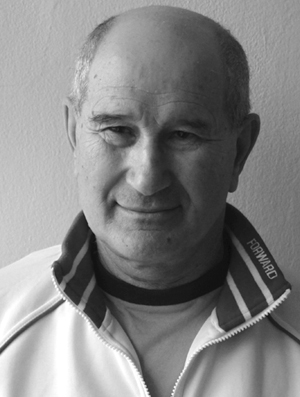Optimization of Fencers' training at the Phase of Sports Perfection
Фотографии:
ˑ:
A.D. Movshovich
professor, Dr.Hab.
V.V. Sidorova
associate professor, Ph.D.
Russian state university of physical culture, sport, youth and tourism (SCOLIPhC), Moscow
Key words: fencing, motor activity, fencing actions, psychomotor reactions, psychology, psychophysiology.
The phase of sports perfection - the age from 17 to 19 years - is characterized by the fact that the most promising and prepared to participate in competitions fencers may be involved in the basic structure of national teams and take part in world championships and Olympic Games, keeping in competitions of the youth sports calendar.
The main pedagogical work with this contingent of athletes is to customize technical and tactical training. Motor training is aimed mainly at the specialization of dexterity and maintaining the due level of quickness, the growth of which, according to some authors, stops when reaching18 years. At the same time speed-strength capabilities reach their maximum in development by the age of 16-18 years in boys, and even earlier in girls.
The purpose of the study was to identify the supporting signs of technical and tactical training of fencers at the phase of sports perfection.
The research methods applied were as follows: video recording of competitive activity, computer fixation system of time of motor responses and psychophysiological functions, Cattell questionnaire, correlation analysis.
References
- Bulochko, K.T. Fencing: textbook for institutes of physical culture / K.T. Bulochko. – Мoscow: Fizkultura i sport, 1967. – 430 P. (In Russian)
- Voitov, V.G. Volitional qualities of young fencers as prerequisites for successful competitive activity / V.G. Voitov, A.D. Movshovich // Teoriya i praktika fizicheskoy kultury. – 1984. – № 6. – P. 27-29. (In Russian)
- Keller, V.S. Fencers' training / V.S. Keller, D.A. Tyshler. – Мoscow: Fizkultura i sport, 1972. – 182 P. (In Russian)
- Keller, V.S. Athletes' actions in variative conflict situations / V.S. Keller. – Kiev: Zdorov'e, 1977. – 181 P. (In Russian)
- Methodological framework for control of fencers' technical and tactical skills / D.A. Tyshler, V.G. Voitov, G.D. Tyshler, A.D. Movshovich // Teoriya i praktika fizicheskoy kultury. – 1984. – № 11. – P. 21-23. (In Russian)
- Nabatnikova, M.Ya. The basic provisions of the system of training for young athletes / M.Ya. Nabatnikova / In: The basics of training of young athletes. – Мoscow: Fizkultura i sport, 1982. – P. 22-41. (In Russian)
- Ovchinnikova, I.M. Control of competitive activity of skilled female fencers in view of emotional and volitional personality traits and temperament: abstract of Ph.D. thesis / I.M. Ovchinnikova. – Мoscow, 1986. – 22 P. (In Russian)
- Polyakov, A.M. Technical and tactical training of female foil fencers at the phase of sports perfection: abstract of Ph.D. thesis. – Мoscow, 1990. – 22 P. (In Russian)
- Turetsky, B.V. Teaching fencing. – Мoscow: Akademicheskiy proekt. – 2007. – 430 P. (In Russian)



 Журнал "THEORY AND PRACTICE
Журнал "THEORY AND PRACTICE